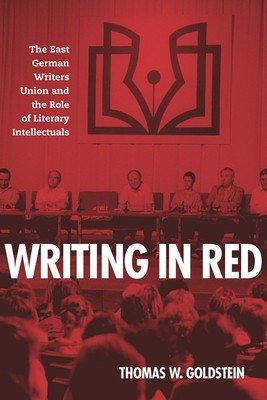
- We will send in 10–14 business days.
- Author: Thomas W Goldstein
- Publisher: Camden House (NY)
- ISBN-10: 1571139206
- ISBN-13: 9781571139207
- Format: 15.2 x 22.9 x 2.4 cm, hardcover
- Language: English
- SAVE -10% with code: EXTRA
Reviews
Description
This book explores how the East German Writers Union became a site for the contestation of writers' roles in GDR society with consequences well beyond the literary community.
In the German Democratic Republic words and ideas mattered, both for legitimizing and criticizing the regime. No wonder, then, that the ruling SED party created a Writers Union to mold what writers publicly wrote and said. Its chief task was ideological: creating a socialist and antifascist culture. But it was also supposed to advance its members' professional interests and enable them to act as public intellectuals with a say in the direction of socialism. Many writers demanded that it pursue this second function as well, which brought it into conflict with the SED. This book explores how the union became a site for the contestation of writers' roles in GDR society with consequences well beyond the literary community. Union leaders, pressured by the SED or the secret police, usually acquiesced in enforcing regime demands, but by the 1980s many authors had adapted to the rules of the game, exploiting theirunion membership to insulate themselves from reprisal for their carefully worded critiques and in so doing beginning to break down limitations on public speech. The book explores how and why in the 1970s the Writers Union helped normalize relations between writers and state, yet over the course of the 1980s inadvertently aided the expansion of permissible speech, ultimately helping destabilize the East German system. Thomas W. Goldstein is Assistant Professor of History at the University of Central Missouri.
EXTRA 10 % discount with code: EXTRA
The promotion ends in 21d.00:39:59
The discount code is valid when purchasing from 10 €. Discounts do not stack.
- Author: Thomas W Goldstein
- Publisher: Camden House (NY)
- ISBN-10: 1571139206
- ISBN-13: 9781571139207
- Format: 15.2 x 22.9 x 2.4 cm, hardcover
- Language: English English
This book explores how the East German Writers Union became a site for the contestation of writers' roles in GDR society with consequences well beyond the literary community.
In the German Democratic Republic words and ideas mattered, both for legitimizing and criticizing the regime. No wonder, then, that the ruling SED party created a Writers Union to mold what writers publicly wrote and said. Its chief task was ideological: creating a socialist and antifascist culture. But it was also supposed to advance its members' professional interests and enable them to act as public intellectuals with a say in the direction of socialism. Many writers demanded that it pursue this second function as well, which brought it into conflict with the SED. This book explores how the union became a site for the contestation of writers' roles in GDR society with consequences well beyond the literary community. Union leaders, pressured by the SED or the secret police, usually acquiesced in enforcing regime demands, but by the 1980s many authors had adapted to the rules of the game, exploiting theirunion membership to insulate themselves from reprisal for their carefully worded critiques and in so doing beginning to break down limitations on public speech. The book explores how and why in the 1970s the Writers Union helped normalize relations between writers and state, yet over the course of the 1980s inadvertently aided the expansion of permissible speech, ultimately helping destabilize the East German system. Thomas W. Goldstein is Assistant Professor of History at the University of Central Missouri.


Reviews